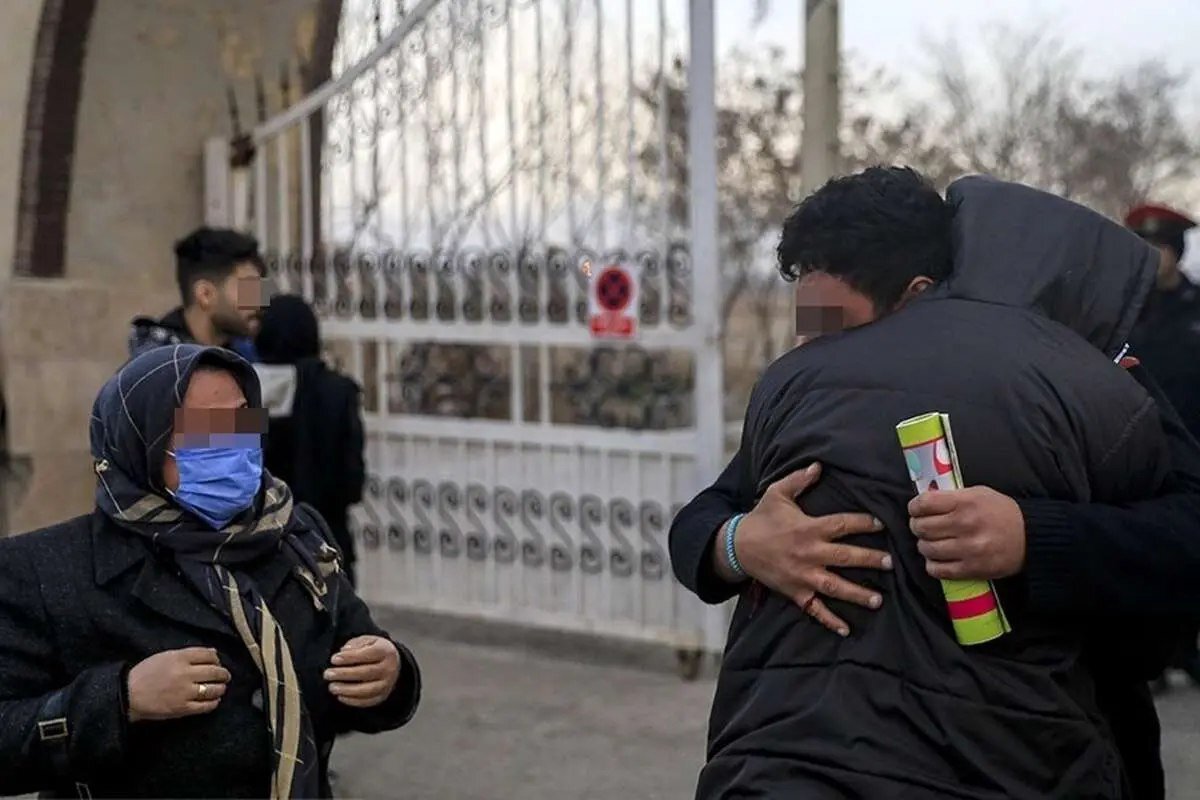The philosophy behind Iran's mass prison pardons
Ayatollah Khamenei pardoned or reduced sentences for over 60,000 inmates last week

TEHRAN – Mahmoud was sentenced to five years in prison after being arrested with drugs in 2023. His offense is considered small-scale drug possession in Iran, as he used the drugs himself and sold them to a small number of acquaintances after obtaining them from a large distributor.
During the two years he has spent in a Tehran prison, the 32-year-old has managed to become clean, frequently attend NA sessions organized by the prison, and learn new skills through the prison’s training program. He had told his inmates that he hopes to become a welder upon his release in 2028.
Mahmoud has frequently contacted his mother during his sentence, keeping her updated on his life behind the bars. She was also the first person he called when he learned he had been pardoned by the Leader of the Islamic Revolution, Ayatollah Seyyed Ali Khamenei, and will no longer have to serve the rest of his sentence.
“More than for myself, I am happy for my mom,” Mahmoud told an Iranian reporter. “She has been so worried about me throughout my 20s. Now that I am clean, have a skill to earn a living, and will soon be out of jail, she is the happiest she has been in years.”
Mahmoud is one of approximately 70,000 inmates who were either pardoned or had their sentences reduced by Ayatollah Khamenei last week. The Leader announced the clemency on the Prophet Muhammad's (PBUH) birthday anniversary, after the judiciary chief presented him with a list of clemency criteria. Upon Ayatollah Khamenei's approval, these criteria were then circulated to judicial authorities across the country.
Iran’s national television has broadcast numerous reports since the pardons were announced last week. Some videos show groups of inmates jumping and shouting with joy after hearing the announcement on TV. Others depict family members crying over the phone upon receiving the news from their loved ones in prison.
This form of pardoning is unique to Iran. The country has two types of clemency: one is case-specific, focusing on individual justice and rehabilitation; the other, like the recent one, is criteria-specific and designed for collective implementation. Ultimate authority for both forms rests with the Leader of the Islamic Revolution, as stipulated in Article 110, Paragraph 11 of the Iranian Constitution, who exercises this power upon the recommendation of the Head of the Judiciary.
“Case-specific clemency is more intricate. It is initiated by a request from the convict, their family, their lawyer, or prison authorities,” said Asghar Jahangir, spokesman for Iran’s judiciary, in remarks to the Tehran Times. “Even if the request is approved, it takes significantly more time compared to criteria-based clemency. There is a preliminary commission that reviews the request. Then it is sent to the district court, followed by the province’s main court. After that, the case goes to the central court in Tehran before being approved by the Leader.”
In the case of criteria-based clemency, individual cases are not reviewed. Instead, the judiciary chief establishes specific criteria and rules, and the only required approval comes from the Leader.
Inmates convicted of non-intentional crimes, minor offenses, and certain financial crimes may qualify for release or sentence reduction if they have served a portion of their sentence, demonstrated good behavior in prison, and are deemed unlikely to repeat their offenses upon returning to society, Jahangir explained. “Special consideration is often given to vulnerable groups, including women who are heads of households, the elderly, and individuals with incurable diseases.”
Iran has utilized criteria-based clemency three times so far: once this year, once in 2018—when between 60,000 and 70,000 inmates qualified—and once in 2022, when around 100,000 were eligible for release or sentence reduction. Jahangir, who holds a PhD in criminology, says Iran’s dual system, which allows mass pardoning of low-risk inmates, benefits both prisoners and authorities. “The process enables inmates to reintegrate into society more quickly and with fewer complications. At the same time, authorities can devote more time, energy, and resources to maintaining public safety.”
Beyond being a sound and effective strategy, Iran’s clemency policy reflects the humanitarian Islamic values upon which its judiciary system is founded. This stands in contrast to frequent accusations by Western states of human rights abuses against prisoners in the country.
“I think instances like this prove that human rights are not merely decorative aspects of Iran’s judiciary, unlike the case in many Western nations,” said Dr. Hesamuddin Boroumand, a human rights expert and scholar. Iran’s criminal law is based on Islamic teachings, which affirm that prisoners have rights just like all other human beings. It also mandates that the dignity and humanity of prisoners must be preserved, regardless of the crime, he added.
“Compare this to how Western states treat people: they support what amounts to a literal genocide in Gaza while simultaneously accusing Iranians of human rights abuses and demonizing Islam.”
Leave a Comment